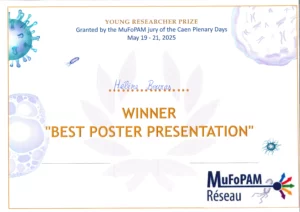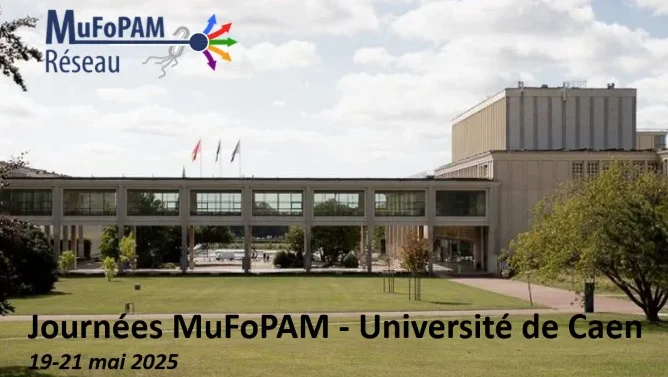
Congratulations to Hélène for winning the Best Poster Award at the annual symposium of the “MultiFunctions of Antimicrobial Peptides” (MuFoPAM) network!
Displayed communications :
Exploration of Antimicrobial Peptides in the hybrid mussel Mytilus edulis x Mytilus galloprovincialis infected with Francisella halioticida. Antimicrobial peptides (PAMs) play a key role in the innate immunity of bivalve molluscs, in particular in mussels of the genus Mytilus. Their constitutive expression makes it possible to guarantee good protection of individuals and contributes to the robustness of these species. In this study, we identified PAMs in a hybrid species Mytilus edulis × Mytilus galloprovincialis from the gill transcriptome. Numerous proteoforms belonging to the families already known, such as those of myticalins, mytilins, mytimacins, defensins or mytimycins, have been demonstrated. By combining a peptidomic approach (MS/MS), we were also able to highlight two new candidates: mytiheline, an 8-cysteine peptide and mytidine, an anionic linear peptide. The expression of all these peptides has also been studied at the level of the gills and the mussel hemocytes after bacterial exposure. The mussels were exposed to two more or less virulent strains of the pathogenic bacterium, Francisella halioticida. Our results show, in general, a strong regulation of the expression of these antimicrobial peptides in response to infection. This first study targeting PAMs makes it possible to initiate the purchase of the sensitivity of mussels to virulent strains of F. halioticida.
Bouras, H., Corre, E., Bernay, B., Blin, JL., Savary, M., Houssin, M., Zatylny-Gaudin., C
